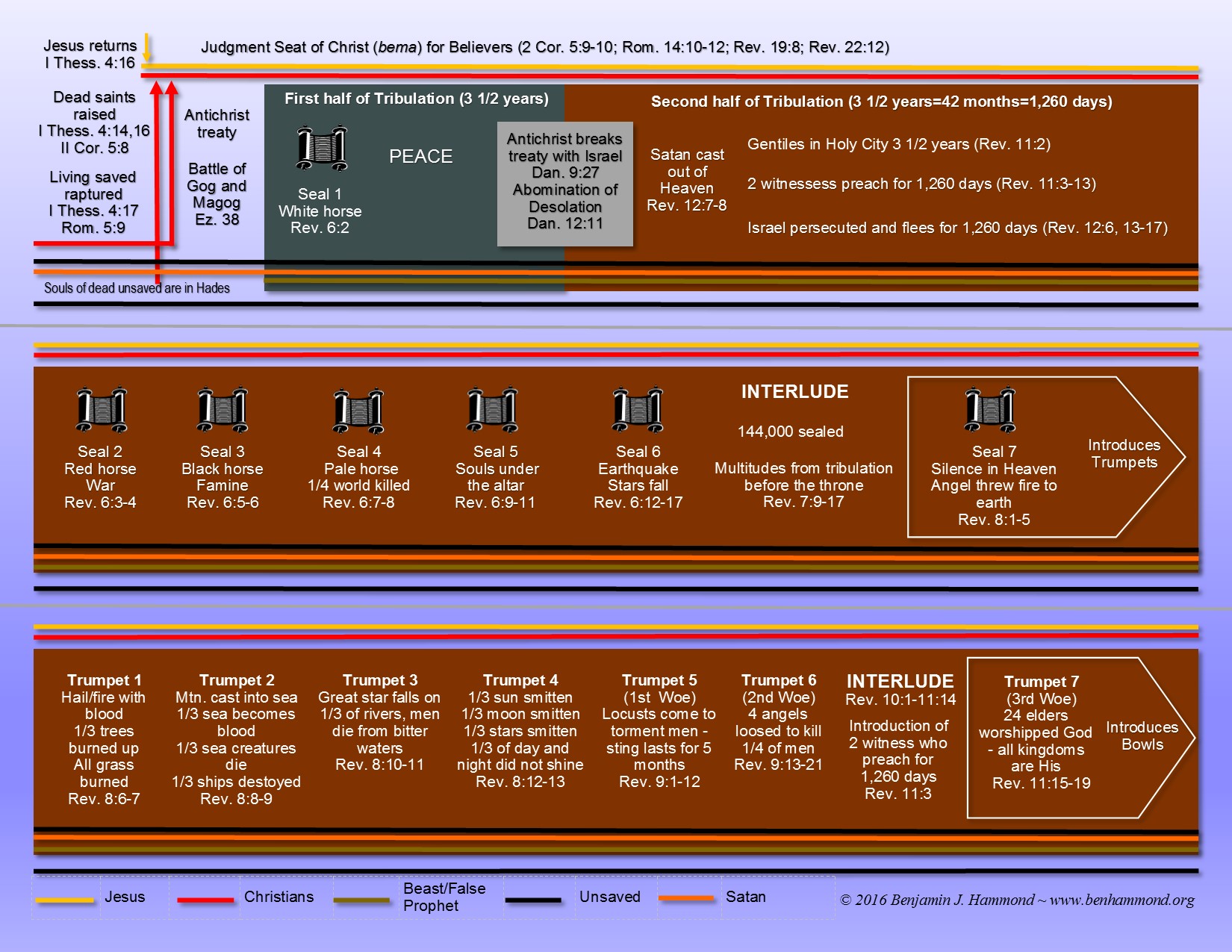 Sometimes it is easy to get confused about what we read in the Bible. One such place is Jesus’ words in Matthew 10:22 that “he who endures to the end will be saved”(NKJV). This is perplexing because at face value it seems that Jesus is preaching a works salvation, but goes on without elaborating on what He meant. This leaves us asking the question, “What did He mean?”
Sometimes it is easy to get confused about what we read in the Bible. One such place is Jesus’ words in Matthew 10:22 that “he who endures to the end will be saved”(NKJV). This is perplexing because at face value it seems that Jesus is preaching a works salvation, but goes on without elaborating on what He meant. This leaves us asking the question, “What did He mean?”
Whenever we come across something in the Bible that does not seems to square with what we already know, we need to kick into “hermeneutics mode.” Please, don’t let your eyes glass over just yet. Hermeneutics is simply a way to describe how we study the Bible.
One of the primary rules of hermeneutics is to interpret the difficult passages based on the ones that are easy to understand, rather than the other way around. In this case, the Bible is pretty clear that our salvation is “not of works” (Ephesians 2:8-9). Therefore, the possibility is raised that Jesus’ words in Matthew 10 might be referring to something else. There is only one way to find out what that “something else” is—study it out.
To correctly study a difficult passage, we need to consider two areas: context and parallel passages. Let’s begin first with context.
In Matthew 10, Jesus is sending His disciples out to preach. This would not be an easy task, as they would discover that the message of the gospel is extremely divisive. Jesus warned them that “you will be hated by all for My name’s sake. But he who endures to the end will be saved” (Matthew 10:22).
For sure, this passage by itself seems to ask more questions than it answers. What does it mean to “endure?” What does it mean to “be saved?” When is “the end?”
Unfortunately, Jesus does not provide any answers here. Since the context is not helping us, we need to move to step 2–parallel passages. A quick look at the two other places that this monologue by Jesus is recorded (Mark 6:7-12 and Luke 9:1-6) reveals that those writers opted to leave out the phrase in question.
However, we will not be daunted in our task. Maybe Jesus used this phrase somewhere else! Alas, He did.
Matthew comes to our aid by describing yet another conversation in which Jesus used this expression.
In chapter twenty-four, Jesus’ disciples gave Him a tour of the Temple and He surprised them by not being impressed with its grandeur. He knew something they did not know—that before long “not one stone shall be left here upon another, that shall not be thrown down” (Matthew 34:2). The disciples correctly assumed that He was talking about the end of time, so they asked Him about it. He obliged by embarking on an extended discourse about the coming of sorrow, persecution, and hatred (sounds a little like Matthew 10, don’t you think?).
The time to which Jesus referred is what we know as the Tribulation, which is a seven-year period in which God will pour out His wrath on earth with the goal of bringing the Jews back to Himself. During this time He will seal 144,000 young Jewish men to go throughout the earth preaching. Many will be saved, but these converts will undergo intense persecution.
The Tribulation will be like nothing this world has ever seen. During this time, the Antichrist will require people to take his mark, which will demonstrate their allegiance to him.
Then a third angel followed them, saying with a loud voice, “If anyone worships the beast and his image, and receives his mark on his forehead or on his hand, he himself shall also drink of the wine of the wrath of God, which is poured out full strength into the cup of His indignation. He shall be tormented with fire and brimstone in the presence of the holy angels and in the presence of the Lamb. And the smoke of their torment ascends forever and ever; and they have no rest day or night, who worship the beast and his image, and whoever receives the mark of his name.” (Revelation 14:9-11)
This will not be an easy decision to make. It will literally be a choice between food and starvation, life and death. Refusing the mark will mean inability to take part in society. Only those who have true faith in God will reject it, knowing that devotion to the Antichrist is irreversible rejection of God.
Now we come back to Jesus’ teaching in Matthew 24. In verse thirteen our phrase appears once again—“but he who endures to the end shall be saved.” Through all of this difficulty, the one who is still going strong at the end will be “saved” (Greek sodzo – delivered, protected, preserved). He has refused to show allegiance to the Antichrist because of his belief in God.
Some, of course, will not physically live to the end; however, they have been faithful and will be raised to enter the Millennium.
And I saw thrones, and they sat on them, and judgment was committed to them. Then I saw the souls of those who had been beheaded for their witness to Jesus and for the word of God, who had not worshiped the beast or his image, and had not received his mark on their foreheads or on their hands. And they lived and reigned with Christ for a thousand years. (Revelation 20:4)
When Jesus gets to verse fifteen, He stops, backs up, and describes the Tribulation in a little more detail. He points out that if this trouble went on indefinitely, no “flesh” (Greek sarx – literally “flesh”) would be saved (verse 22). No one would be able to survive this unless God put a stop to it.
And unless the Lord had shortened those days, no flesh would be saved; but for the elect’s sake, whom He chose, He shortened the days. (Mark 13:20)
Many years earlier it had been prophesied to Daniel that God knew exactly how long the Tribulation would last (specifically referring to the last half of the seven-year period).
And from the time that the daily sacrifice is taken away, and the abomination of desolation is set up, there shall be one thousand two hundred and ninety days. Blessed is he who waits, and comes to the one thousand three hundred and thirty-five days. (Daniel 12:11-12)
Jesus’ teaching in Matthew 24 reveals that the “end” to which He referred in Matthew 10:22 was far beyond the next few months. The disciples He was sending out would share a message that would be propagated by ensuing generations all the way up to the end of the Tribulation. Those who will believe the message of the 144,000 during the Tribulation and refuse the mark of the Antichrist will be saved from destruction and will enter the peaceful Millennial kingdom.
Both Mark (13:3-13) and Luke (21:7-28) relate the same conversation that we find in Matthew 24, but Luke does not include the phrase “he who endures to the end shall be saved.” In its place is something even more intriguing. In verse nineteen he records Jesus as saying, “By your patience possess your souls.” What does that mean?
You may find it interesting to note that the word translated as “patience” comes from the word translated as “endure” in Matthew 10:22. The word translated as “possess” is an imperative word that means to acquire something for oneself. So we could translate Jesus words as “acquire your souls through your endurance.” Sounds pretty similar to what we have already discussed, huh?
But there’s a problem. Up to this point we have determined that Jesus has indicated that those who, because of their faith in God, refuse to submit to the Antichrist, will be rescued at the end of the Tribulation. However, Luke specifically mentions their “souls.” So are we to return to the notion that in fact “soul salvation” is made possible because of our endurance?
Let’s find out. The first thing you might notice is that this word is translated in the NIV as “life” and in the ESV and NASB as “lives.” What is it, souls or lives?
Time to get a little technical.
The Greek word used here is psuche. Usually we think of this word describing the “real” part of us—the part that goes to be with God when we die. In other words, our “soul” as opposed to our “body.” However, this word is also translated many times as “life” (even in the KJV and NKJV which render it “soul” in this passage). In the New Testament, psuche is used interchangeably, referring to both the idea of “life” as well as the enduring part of a person that goes to be with God (which we usually call the “soul”).
Still with me?
If you are curious about this, let’s take a look at some verses in which the word psuche clearly refers to each. If you’ve got it, feel free to skip this list of verses and move on.
First, psuche refers to our eternal being (that will eventually go to be with God).
And do not fear those who kill the body but cannot kill the soul. But rather fear Him who is able to destroy both soul and body in hell. (Matthew 10:28)
. . . he, foreseeing this, spoke concerning the resurrection of the Christ, that His soul was not left in Hades, nor did His flesh see corruption. (Acts 2:31)
When He opened the fifth seal, I saw under the altar the souls of those who had been slain for the word of God and for the testimony which they held. (Revelation 6:9)
For what will it profit a man if he gains the whole world, and loses his own soul? Or what will a man give in exchange for his soul? (Mark 8:36-37)
Most of the time, however, psuche refers not to the eternal soul, but to life itself.
And a third of the living creatures in the sea died, and a third of the ships were destroyed. (Revelation 8:9)
In this verse, it is used to describe the life of the creatures that live in the sea. However, it usually refers to the deeper level of life in a human.
For even the Son of Man did not come to be served, but to serve, and to give His life a ransom for many. (Mark 10:45)
Therefore My Father loves Me, because I lay down My life that I may take it again. (John 10:17)
He did not lay down His eternal soul only to take it back later. He laid down His life.
Then He said to His disciples, “Therefore I say to you, do not worry about your life, what you will eat; nor about the body, what you will put on. Life is more than food, and the body is more than clothing. (Luke 12:22-23)
Greater love has no one than this, than to lay down one’s life for his friends. (John 15:13)
It seemed good to us, being assembled with one accord, to send chosen men to you with our beloved Barnabas and Paul, men who have risked their lives for the name of our Lord Jesus Christ. (Acts 15:25-26)
In case you want to continue this study, you can look up the following passages: Revelation 12:11; I John 3:16; Philippians 2:30; Acts 27:22; Acts 15:26.
From these verses it is obvious that psuche does not necessarily have to mean the eternal soul. Therefore, the phrase “by your patience possess your souls” (Luke 21:19) does not have to mean that endurance is what provides for our eternal salvation. Luke is simply recording what Jesus said in other words. During tribulation, stay faithful. Don’t give up! Just press on until the end, and you will be rescued.
Those who do not endure and instead submit to the Antichrist will be lost forever. Their failure to endure does not mean that they lost a previously possessed salvation, but that they are not true followers of Jesus. Endurance does not make a person a follower of Jesus; it proves that a person is already a follower of Jesus. If you entered a marathon and came in first, your success would not make you the best athlete, would it?. Rather, it would prove that you already are the best athlete. See the difference?
So, what does all of this mean for us? Now that we know Jesus is referring to the Tribulation, is it merely time to close our Bibles and move on to something else?
No, there is something we need to learn. After all, if Jesus only wanted us to know that those who were faithful during the Tribulation would be rescued in the end, why did He mention it in Matthew 10:22? He didn’t give any more details about the Tribulation. Apparently the disciples understood that He was also talking about something more immediate.
I believe that Jesus wanted the disciples to understand that He requires faithfulness all the way to the end. The disciples were to press on in their preaching regardless of the persecution they would experience. Their authenticity as believers would be shown through endurance just as it will be for those in the Tribulation. Endurance is a mark of true believers.
It is here that we enter into a field of land mines because everyone knows someone who made a profession of faith and then fell away. Is that person backslidden? Were they ever truly believers? Unfortunately, we don’t always have answers to these questions.
J. Vernon McGee points out that “pigs will eventually end up in the pigpen, and the prodigal sons will all find their way back to the Father’s house. It is confusing to find a son in a pigpen and a pig in the Father’s house.”[i] Yes, it is. However, Peter, warning about false teachers, claims that eventually a person’s true colors will be revealed.
But it has happened to them according to the true proverb: “A dog returns to his own vomit,” and, “a sow, having washed, to her wallowing in the mire.” (II Peter 2:22)
We could also consider the parable of the seeds (Matthew 13). Some of the scattered seeds found just enough nourishment where they could sprout up, but soon withered away. The lesson is that the message of the gospel can fall on some ears that will gladly receive it for a host of reasons. These folks can learn all the right lingo, be baptized, and join the church. However, their faith is merely superficial and will in time fade away. There is no endurance because they are not genuine.
Maybe if Jesus were right here today He would give us the same charge He gave to His disciples. “Go out there and preach the gospel. Live the gospel. It will be difficult, but keep your eye on the end. When it feels like you can no longer continue, remember that one day you will be rescued from it.” When things get difficult, “Look up and lift up your heads, because your redemption draws near” (Luke 21:28)!
[i] McGee, J. Vernon. Through the Bible with J. Vernon McGee, vol. 4, Matthew – Romans. (Pasadena, CA: Thru the Bible Radio, 1983), 127.




